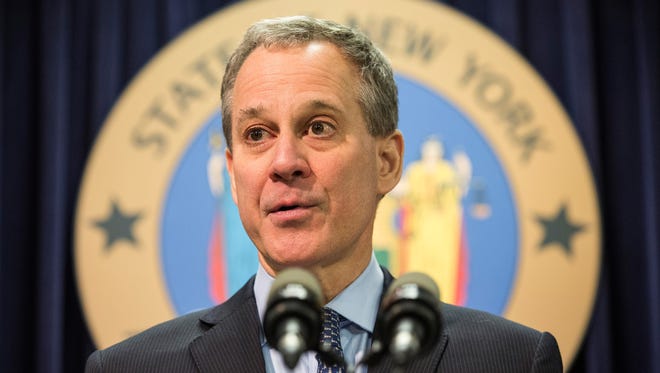Herbal supplement maker to strengthen quality controls
Herbal supplements marketed by one of the nation's top suppliers will soon undergo stricter screening to ensure they contain the products their labels promise consumers.

NBTY, which sells ginseng, ginkgo biloba and nearly 22,000 other products under popular brands such as Solgar and Nature's Bounty, agreed to the testing in an agreement announced Wednesday by New York state's top law enforcement official.
The company is the third to enact plans for screening that exceeds federal standards since a 2015 study commissioned by New York Attorney General Eric Schneiderman failed to confirm the presence of genetic material for many of the plants depicted on labels of many herbal supplements sold at GNC, Target, Walgreens and Walmart stores.
Instead, the study showed the pills contained inexpensive fillers, such as powdered rice. The findings covered some NBTY-manufactured supplements sold at Walgreens and Target. Schneiderman's office demanded that the companies stop selling the products, and subsequently reached agreements with GNC and Nature's Way.
"When consumers take an herbal supplement, they should be able to do so confident that the plant on the label is the plant in the bottle, and that every reasonable precaution was taken to ensure the product's authenticity and purity," Schneiderman said in a statement announcing the similar NBTY agreement.
14 AGs seek herbal supplements industry review
In a written response, NBTY General Counsel Stratis Philippis said, “We are pleased that through cooperation and mutual understanding we have reached an agreement with the New York Attorney General.”
Philippis said that there was "no evidence" the company "deviated or failed to comply with FDA requirements or industry standards" and that "DNA testing of herbal dietary supplements is an emerging science."
"We hope this will help create reliable DNA testing that could be an additional tool for authenticity testing of herbal raw materials for our entire industry going forward,” he said.
The tougher safeguards will include:
► DNA barcoding, a scientific technique used to verity the identity and presence of plant species. NBTY agreed to start the testing on herbal supplements within two years.
► An annual testing protocol to detect potential allergens, including peanuts, milk, soy, eggs and wheat, in finished herbal products.
► Doubling the number of on-site audits of the company's major ingredient suppliers.
► Investing at least $250,000 in herbal authenticity genetic research.
Based in Ronkonkoma, N.Y., NBTY employs more than 11,000 associates worldwide and has manufacturing, packaging, warehouse, distribution and administration facilities across the United States and Canada.
The company was acquired in 2010 by The Carlyle Group, one of the world's largest private equity firms.
Follow USA TODAY reporter Kevin McCoy on Twitter: @kmccoynyc